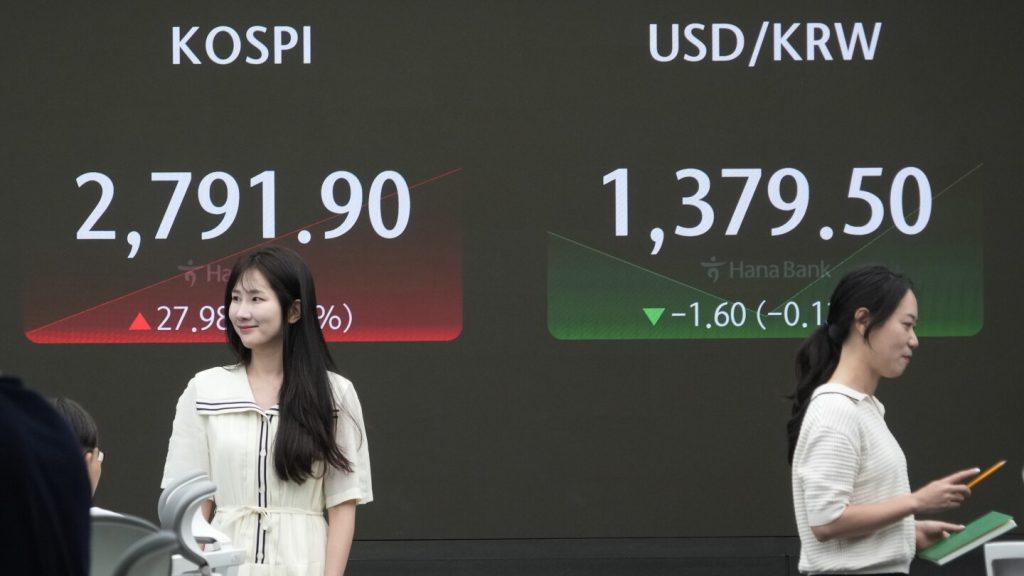Asian stocks were mixed on Wednesday after U.S. benchmarks reached new highs amid signs that the U.S. economy may be slowing without entering a recession. In Japan, the Nikkei 225 index climbed 0.2% as trade data for May showed increases in both exports and imports. The Bank of Japan is considering raising interest rates in the future depending on economic conditions. In Hong Kong, the Hang Seng added 2% while the Shanghai Composite lost 0.3% as China’s securities watchdog announced enhanced oversight of financial activities.
The S&P/ASX 200 in Sydney edged lower, while South Korea’s Kospi surged 1%. Stocks in Taiwan and Bangkok also experienced gains and losses, respectively. In the U.S., the S&P 500 and Nasdaq set new records on Tuesday. Nvidia was a major contributor to the S&P 500’s gains, with its stock up nearly 174% this year. However, concerns linger about the market’s reliance on a few standout performers, which could lead to fragility in the market.
The latest data on retail sales in the U.S. showed a smaller-than-expected increase in May, raising concerns about the strength of consumer spending, which is a key driver of the economy. Inflation remains high, particularly impacting lower-income households. Despite these challenges, a global survey of fund managers revealed optimism about stocks and a lack of cash holdings, with allocations heavily weighted towards stocks. The possibility of a “hard landing” recession is also less of a concern among managers.
In other financial news, U.S. benchmark crude oil prices remained stable, while Brent crude saw a slight increase. The U.S. dollar strengthened against the Japanese yen and the euro. Overall, the financial markets continue to navigate a complex landscape of economic data, market performance, and investor sentiment. The mixed trends in Asian stocks and the continued record-setting in the U.S. suggest a cautious optimism tempered by concerns about potential risks and vulnerabilities in the global economy.


